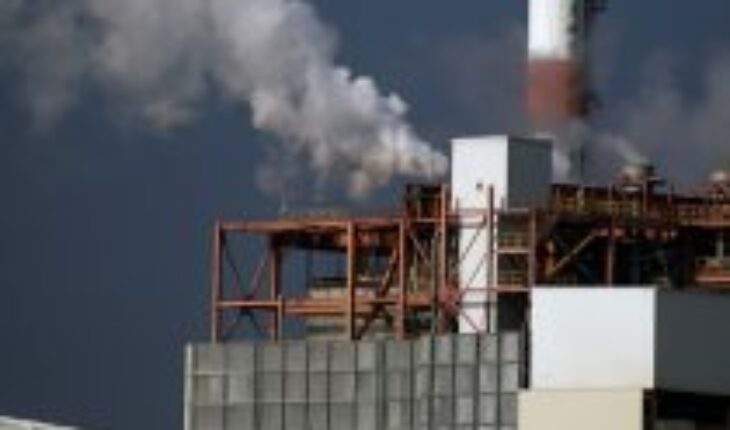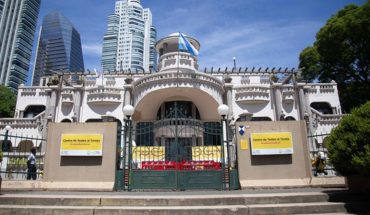Decades ago, the children of Valparaiso looked towards the Bay of Quintero, where the first chimney of the Ventanas foundry loomed, and asked their family what that was. “That, daughter, is the giant that smokes,” the elders replied. And sure enough, hill and chimney drew on the horizon the silhouette of a man lying down, smoking. Answer that at that time made sense.
Chilectra and Enami Ventanas (whose foundry had to be bought by Codelco in 2004) were the first to arrive in the area in 1958 and 1964, respectively. Later it was done by Oxiquim, Gasmar, Enap, and the 20 companies that cloud the childhood of the area, violated by constant episodes of pollution and drastic increases in sulfur dioxide; with school closures so that industries – mostly private – would continue to function.
Today the ‘giant who smokes’ no longer has a body, the bay is not even glimpsed most days, due to the cloud that emanates from there. As every July 11, in the midst of the cold, we commemorate in Chile the Day of National Dignity, because in 1971 the National Congress approved Law 17,450: the nationalization of copper, proclaimed by President Salvador Allende. It is paradoxical that today the same copper industry wreaks havoc in the territories where they are installed and also in their polluting arms. 48 kilometers inside Quintero and 120 kilometers north of the city of Santiago is located the town of El Melón, a poor town with a mining tradition that for decades has endured the abusive neighbor that has polluted its air, soil and water, with a tailings that keeps mining waste, which in its great majority comes from private industry. As well as the material that Codelco receives in its foundry in Ventanas.
This is where both communities connect. Thus the dignity that brought the nationalization of copper to our people is blurred, where the extractivist and predatory model has privileged private production and investment over the health and lives of people. Likewise, mining and the energy industry, through dozens of companies, have saturated Tocopilla, Mejillones, Huasco and Coronel, without criteria. In this way, extractivism has shown a complete indifference to those who inhabit sacrifice zones and environmentally saturated territories that, as a rule, are always economically vulnerable sectors, where that economic development only fills the pockets of a few, leaving entire peoples and communities at their mercy.
When in mining it is necessary to throw away waste, the poor inhabitants are the ones who have to take in the mining tailings, as in El Melón, Tiltil or in Alhué. When the forestry and pulp industry needed land, the dictatorship did not hesitate to hand over everything, stripping the Mapuche people once again of their lands. Contaminated napas and monoculture destroying territory are another example of this indifference that we mentioned. One that passes over the communities and whose view of development is doubtful.
And with this we do not aim to eliminate all industries, that would be to ignore the economic policy and the labor need of our people. It’s about leveling the playing field, reconfiguring where public investment is going. Recall that Codelco Ventanas is a company that at least since 2009 has generated millionaire losses that the State had to assume and whose refinery solves private companies in its majority. With this, we believe that Chile must move forward in a public industry, which promotes a new perspective.
One that guarantees the right to the city, that makes use of the new mechanisms of popular participation guaranteed in the future new Constitution and that the communities choose. A future for children where they choose and are not forced to live surrounded by pollution, and at the same time the companies installed in their territories must pay taxes in their communes, and not in Las Condes or Vitacura where the administrative houses of each extractivist body stand.
The financial and power autonomy of the territories in resistance is a flag that this new Constitution takes charge of, and we believe it is fundamental to guarantee national dignity again, so that tomorrow our children see the rivers run and breathe clean airs. Specifically, that our children are happy.
Follow us on
The content expressed in this opinion column is the sole responsibility of its author, and does not necessarily reflect the editorial line or position of El Mostrador.





